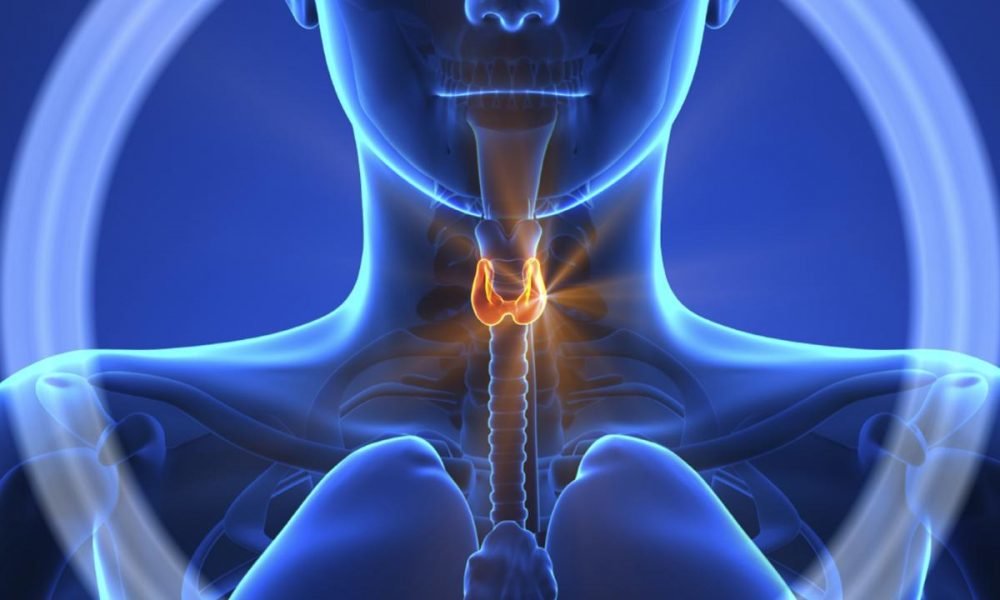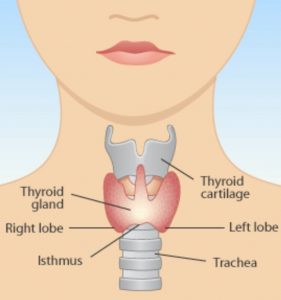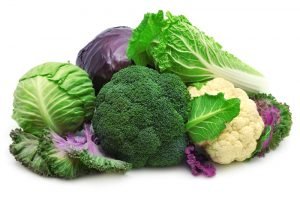
Avoid These Foods If You Have Thyroid Gland Issues

Have you ever heard of goitrogens? These are the substances that ‘live’ in some types of food and are bad for your thyroid gland. Well, actually, if you already don’t have any problems with the functioning of your thyroid gland (hyperthyroidism or hypothyroidism) these foods won’t bother you at all. Usually, those foods are considered as healthy foods, but only for people without thyroid problems.
Therefore, avoid these foods if you know that your thyroid gland is malfunctioning since they will make the situation even worse:
- Cabbage
- Spinach
- Kale
- Broccoli
- Brussel sprouts
- Turnips
- Cauliflower
- Radishes
- Soy
- Mustard and Mustard greens
Avoiding doesn’t actually mean that you shouldn’t eat them at all; just be careful and take them moderately.
Now, it is important for you to understand the facts listed beneath.

 Why is thyroid gland important?
Why is thyroid gland important?
It is one of the largest glands in the endocrine system and is placed in the neck, below the cartilage. Thyroid gland normally has a shape of a butterfly and lies up against the trachea and larynx. Its ‘duty’ is to control how our body responds to other hormones. It makes certain proteins and controls how fast our body uses its energy. Long story short – the thyroid gland monitors our body’s response to hormones and influences our mood, body temperature, and metabolic rate.
 How do goitrogens work?
How do goitrogens work?
Generally, goitrogens inhibit iodine metabolism, which is important in the formation of thyroid hormones (T3 and T4). If iodine fails to be adequately taken by the thyroid gland, then the formation of thyroid hormones won’t happen. It is more than obvious that this is a bad thing for people with hypothyroidism— they already have problems with the production of thyroid hormones even without consuming goitrogens.
 Some goitrogenic foods are not so bad
Some goitrogenic foods are not so bad

While it is advisable that anyone with a thyroid malfunction minimizes the intake of goitrogens (in some cases even completely stop consuming them), some goitrogenic foods are worse than others. For example, the cruciferous vegetables are generally very healthy. Therefore, eating cruciferous vegetables on an occasional basis for someone with hypothyroidism is not a bad thing.
On the other hand, a lot of research has proven that soy is not actually so good for us. Even though people who don’t suffer from a thyroid disorder are unlikely to develop this disease by consuming goitrogens, soy might be an exception to this. To be more precise, it has been proven that eating soy frequently can potentially lead to numerous health problems.
Some of the goitrogenic foods mentioned above are considered mildly goitrogenic, for example, spinach, strawberries, and peaches. Additionally, it is important to mention that some recent studies suggest that cooking these foods may destroy their goitrogenic activity, so you better cook it a bit than eat it raw.
 Gluten-related issues
Gluten-related issues
Guten sensitivity contributes to a wide range of autoimmune responses. Even though celiac disease is the one for which gluten is mostly blamed, gluten sensitivity also goes hand-in-hand with autoimmune thyroid disease. By eliminating gluten from your diet, your overall state may improve. If you suffer from autoimmune thyroid it means that it is necessary for you to eliminate foods which contain gluten. Those are mostly wheat, barley, and rye. Even going to a completely gluten-free diet is a good decision in this case.
 Hyperthyroidism vs. Hypothyroidism
Hyperthyroidism vs. Hypothyroidism
Some researchers suggest that people with hyperthyroidism should eat a lot of goitrogenic foods since it reduces the amount of produced hormone (they suffer from overproduction). Still, others say that this is not advisable. Yes, someone with a hyperthyroid condition can eat more goitrogens compared to someone who has hypothyroidism, but he should not overdo it. This is because simply taking goitrogenic foods will not cure the hyperthyroid condition itself. Rather, it will affect its symptoms and thus mask the actual illness.
To conclude, if you have hypothyroidism, you definitely have to be careful with the consumption of goitrogenic foods. On the other hand, if you suffer from a hyperthyroid disorder, you should not intentionally consume lots of goitrogenic foods in order to inhibit thyroid activity since this will not solve the actual problem but mask it.
More in Nutrition & Weight Loss
-
`
Are High Deductible Insurance Plans as Ideal as They Appear to Be?
High deductible insurance plans have been a hot topic for years, especially as healthcare costs continue to rise. For many Americans,...
October 31, 2024 -
`
How Training Load Data Can Transform Your Exercise Routine
Tracking progress during workouts is challenging. Simple metrics like mileage or time don’t show the whole picture. Understanding the overall effort...
October 26, 2024 -
`
Katy Perry’s Weight Loss Journey: Secret Diet Tips Revealed
Katy Perry’s weight loss journey has been making headlines, with the pop star shedding 20 pounds over the past few months....
October 16, 2024 -
`
Celebrity Trainer Jeanette Jenkins Shares 5 Key Workout Motivations
Jeanette Jenkins is one of the most sought-after celebrity trainers, known for her ability to motivate and inspire people to achieve...
October 8, 2024 -
`
How to Spot Lung Problems Early and Protect Your Health
Lung problems can sneak up on anyone, affecting breathing and overall well-being. Recognizing early symptoms can be crucial in preventing severe...
October 2, 2024 -
`
How to Get Into ‘Breaking Shape’ | A Guide for First-Timers
Breaking is not just a dance style. It is a full-body workout. To get into breaking shape, you will need more...
September 27, 2024 -
`
What to Do If You Mess Up Your Diet: A Recovery Guide
Everyone makes mistakes when it comes to diet. It’s natural to wonder what to do if you mess up your diet,...
September 19, 2024 -
`
Did Charles and Alyssa Break Up? The Signs That Have Fans Concerned
Did Charles and Alyssa break up? This question has taken over social media, sparking a wave of concern among the couple’s...
September 11, 2024 -
`
5 Essential Health Activities You Should Keep Track of Every Day
What should you track every day for health? Well, to maintain your well-being it is crucial to keep track of everyday...
September 6, 2024















You must be logged in to post a comment Login